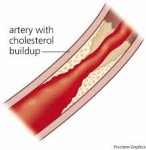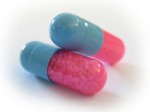Unsubstantiated claims, lack of scientific safety and efficacy data, and lack of quality control continue to surround custom-compounded bioidentical hormone products and yet, many women seem to believe that they are somehow "safer" than lab synthesized hormones. FDA-approved hormone therapy provides tested and regulated therapy without the risks of unregulated and untested custom preparations that often include custom compounded therapies.
Bioidentical hormones, a marketing term not recognized by the US Food and Drug Administration (FDA), refers to exogenous hormones biochemically similar to those produced within the body and includes 17A-estradiol (predominant estrogen before menopause), estrone (predominant estrogen after menopause), estriol (from placenta), progesterone (ovaries, placenta, and adrenal glands), testosterone (ovaries and adrenal glands), and their conjugates.[1] These are derived from soy and yam precursors and must be chemically processed to make them able to be absorbed by the human body.
Hormones that meet the definition of bioidentical are available as FDA-approved prescription therapies and include estradiol (oral, patch, gel, lotion, mist, and vaginal ring, cream, or tablet) and micronized progesterone (oral or vaginal). The FDA has not approved estriol. Custom-compounded bioidentical hormone products are prepared, assembled, and packaged according to a provider's prescription into gels, creams, lotions, sublingual tablets, subdermal implants, suppositories, or troches.[2] Transdermal therapies avoid the first-pass effect through the liver, and there is evidence that they have a lower clotting risk.[3] Progesterone may have fewer negative effects than synthetic progestins on lipids, sleep and mood, and breast (density, tenderness, and cancer risk) when combined with estrogen. No FDA-approved testosterone therapy (bioidentical or otherwise) is available for women.
Lack of Testing for Efficacy, Safety, and Quality Control
The major difference between FDA-approved hormone products meeting the definition of bioidentical versus custom-compounded products is that the former are regulated by FDA, tested for purity, potency, and efficacy, and sold with FDA-approved product information that includes boxed warnings. Efficacy and safety data, required for obtaining particular product indications, have been demonstrated in randomized, clinical trials with peer-reviewed published reports for FDA-approved bioidenticals but not for custom-compounded products.[4,5]
No large, long-term studies have been done to determine the effectiveness, safety, or adverse effects of custom-compounded bioidentical hormones. In 2008, because of lack of scientific data on estriol, FDA stated that pharmacies should not compound drugs containing estriol unless the prescriber has a valid investigational new drug application.[4]
To read the entire article, visit Menopause. To learn more about your options during menopause visit MenopauseNU.org developed by the Women's Health Research Institute at Northwestern University.
 Chronic Obstructive Pulmonary Disease, the third leading cause of death in the U.S., was thought to primarily affect men. But in recent years, the number of women with COPD has significantly increased and today more women than men die of COPD. This increase was originally thought to be a latent effect due to the increase in smoking in women in the 1060's but new research suggests that some other sex effects may be in play.
Chronic Obstructive Pulmonary Disease, the third leading cause of death in the U.S., was thought to primarily affect men. But in recent years, the number of women with COPD has significantly increased and today more women than men die of COPD. This increase was originally thought to be a latent effect due to the increase in smoking in women in the 1060's but new research suggests that some other sex effects may be in play.
 Some women need to take medicines during pregnancy for health problems like diabetes, depression, morning sickness or seizures. Always talk with your doctor, nurse, or pharmacist before taking any medicines, vitamins or herbs. Don't stop taking your prescription medicines unless your health care provider says that it is OK.
Some women need to take medicines during pregnancy for health problems like diabetes, depression, morning sickness or seizures. Always talk with your doctor, nurse, or pharmacist before taking any medicines, vitamins or herbs. Don't stop taking your prescription medicines unless your health care provider says that it is OK. Men being treated with hormone therapy for prostate cancer are not always getting bone-strengthening drugs they may need according to a Canadian study reported in a
Men being treated with hormone therapy for prostate cancer are not always getting bone-strengthening drugs they may need according to a Canadian study reported in a  Holiday celebrations lead to a bit of overindulgence but you can stay in good cheer with tips from Melinda Ring, M.D., medical director of the
Holiday celebrations lead to a bit of overindulgence but you can stay in good cheer with tips from Melinda Ring, M.D., medical director of the  Early results of the ELITE study find women who started hormone therapy early after menopause saw a significant slowing of atherosclerotic progression, whereas those who waited more than a decade saw no impact on vascular health, supporting the "timing hypothesis".
Early results of the ELITE study find women who started hormone therapy early after menopause saw a significant slowing of atherosclerotic progression, whereas those who waited more than a decade saw no impact on vascular health, supporting the "timing hypothesis". In response to the call for more sex inclusion data in drug studies, the FDA has developed
In response to the call for more sex inclusion data in drug studies, the FDA has developed  The cognitive decline associated with Alzheimer's Disease (AD) may be related to the particular pathology of this disease which researchers continue to study. One study at Stanford suggests that if you slow the pathology (biologic) progression it could slow the path to full dementia. In other words, if you stay healthier, you may slow the biological process that causes the progression of dementia. Some suggested tactics:
The cognitive decline associated with Alzheimer's Disease (AD) may be related to the particular pathology of this disease which researchers continue to study. One study at Stanford suggests that if you slow the pathology (biologic) progression it could slow the path to full dementia. In other words, if you stay healthier, you may slow the biological process that causes the progression of dementia. Some suggested tactics: